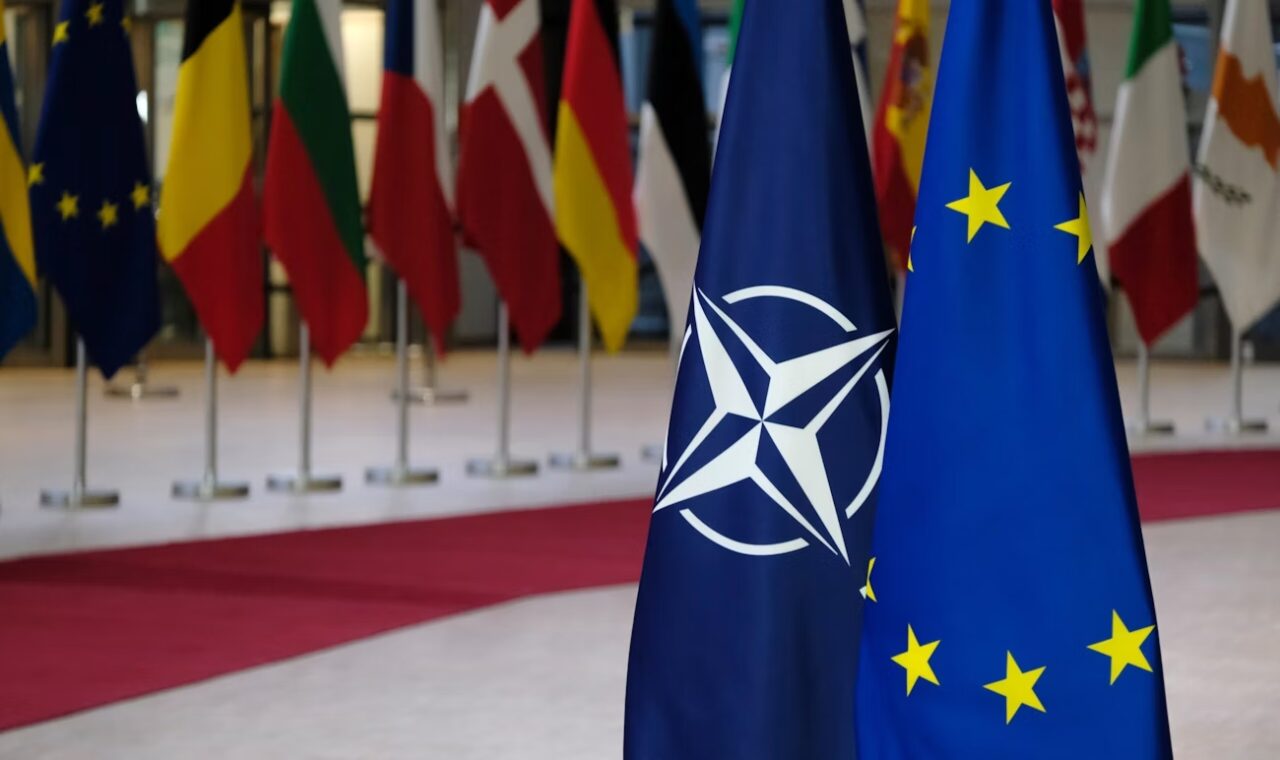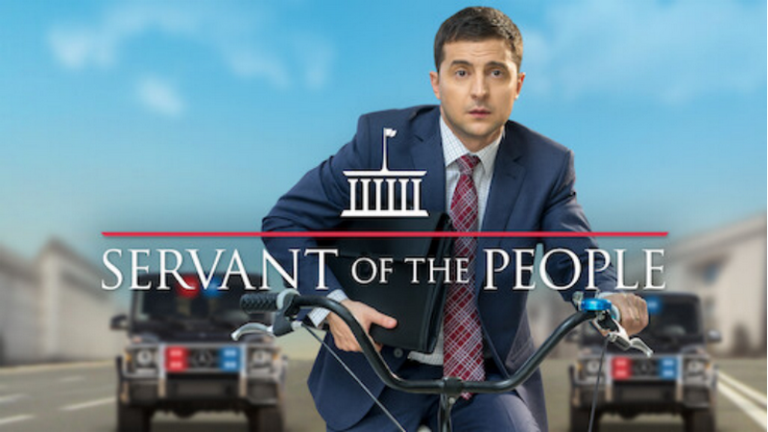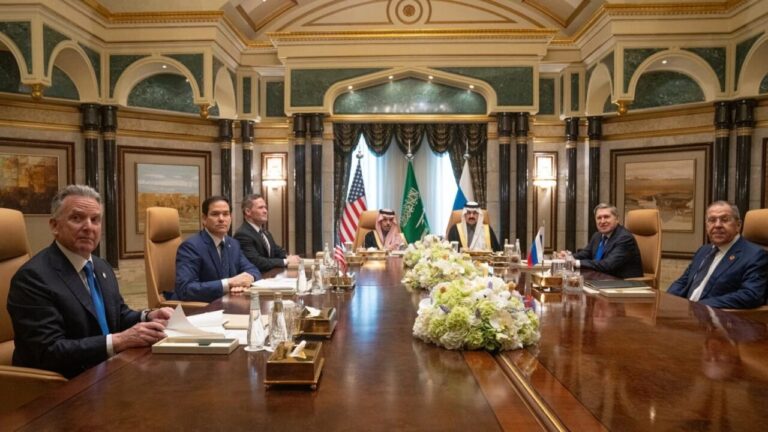Europe is coming to grips with new global realities.
James Carden of The American Conservative and David Speedie of the Carnegie Council’s Global Engagement Program sat down with Baron Robert Sidelsky to discuss his newfound optimism regarding a settlement between Russia and Ukraine and Europe’s continued dependence on American security guarantees. Baron Skidelsky has been a member of Britain’s House of Lords since 1991. He is professor emeritus of political economy at Warwick University in the United Kingdom. The author of the definitive and prize-winning three-volume biography of the economist John Maynard Keynes, Skidelsky has been one of the United Kingdom’s most principled and outspoken critics of the UK’s pro-war Ukraine policy.
The interview has been edited for length and clarity.
David Speedie: Robert, it’s wonderful to be with you. In a splendid article for The American Conservative you called for a new security arrangement with Russia. So I’ve two questions: What are the prospects for this really happening, even as the Ukraine war seems to be tilting decisively in Russia’s favor? You refer to President Trump as tearing up the liberal script and a shifting to an active peace policy. You say there could be a ceasefire as early as spring. How do you see this unfolding toward a positive outcome which would either mean ending the war—or at least freezing the war?
It’s easy to be pessimistic and it’s easy to point to all the obstacles in the way of ending the fighting, but I think optimism, moderate optimism, is justified now because I think because there’s going to be a new dynamic.
In the piece for The American Conservative I talked about active peacemaking substituting for passive peacemaking—and I think there is active peacemaking happening now. The new president has said that that’s a priority. He’s appointed a negotiator. Apparently there are going to be proposals presented in Munich next week by General [Keith] Kellogg. We don’t know what they are. They’re going to be discussed with the European leaders, but there’s something active going on. He’s also talked about bringing in China, and that’s essential. So I think there is some reason to be optimistic as to the security system.
Again, once you accept that there is a Russian redline, which is that it will not accept Ukrainian membership of NATO, if you accept that as the basis, you’ve got to have a new security system, one that safeguards Ukraine against possible Russian aggression, but also safeguards Russia against the expansionist proclivities of NATO. That’s a logical starting point. So once something is established in logic, one can start arguing for it and then looking at what practical obstacles might stand in its way, both I think are worth a modified optimism.
Speedie: It does, however, present something of a sea change. Obviously we’re interested both in your voice as a member of the House of Lords, and because of your broader view. You’ve been steeped in these matters for many years. In 1999 you were expelled from the conservative side of the aisle in the Lords for condemning the U.S. bombing of Yugoslavia. And you’ve used the word “treasonable” to describe your own views up until now. Is a paradigm shift in British foreign policy really likely now? Would it be because of the new Labour government under Keir Starmer? You seem to have had a pretty much a lonely voice in parliament on issues ranging from Kosovo to Ukraine, so what changed?
What’s changed? Two co-religionists, as I call them, in Parliament; me, and I won’t name the others, but there are three of us, and we’ve spoken along peace lines to stony silence from the other people listening in the House of Lords, so it’s been a lonely position.
No, it’s not the Starmer government that shifted the game. They simply echo in exactly the same terms and language what the previous conservative administration was saying. No, the shift in the war is important. Until about a year ago, I think the assumption was that Ukraine, with sufficient economic and military help could defeat Russia. That seemed to be the dominant narrative.
So the phrase “we’ll do what it takes” was repeated like a mantra. And when you asked what the plan was, they would say, victory! And this meant the recovery of all the territory that the Russians seized since 2022, plus Crimea. It also meant more sanctions and providing Ukraine with all the weapons it needs to effectively counter attack. And after the war would come war crimes trials. All these things were in the package of what’s called a Ukrainian “victory” and corresponded to President Zelensky’s maximalist position.
Well, that now looks completely implausible.
Since 2024, the Ukrainian position has steadily worsened, and if there are no further interventions of any kind, they will lose this war. And if it’s left to that, then Ukraine will be in a much worse position than if there was a compromise peace in the near future.
The other thing that has changed is that there’s a new person in the White House, and that’s crucial. America has led all this with Britain as its cheerleader. And Europeans, continental Europeans, I mean, have been much more nuanced about it, partly because Germany relied on Russian gas and was very reluctant to break the relationship.
Washington is a different place today or will be a different place soon. If it’s not, I’d be very disappointed.
James Carden: I can’t really pass up an opportunity to talk with you and not ask you about Keynes. In your book Keynes: The Return of the Master you discussed Keynes’s Doctrine of Prudence. It seems to me that the authors of NATO expansion would’ve been wise to have thought about what Keynes said in his essay on Burke, namely, “It is not sufficient that the state of affairs we seek to promote should be better than the state of affairs which proceeded, it must be sufficiently better to make up for the evils of the transition.”
It seems to me that that was given no consideration in the late nineties as we decided to expand the alliance to Russia’s borders. So I was wondering what lessons you think statesmen might draw from Keynes’s own theory or philosophy of statesmanship as you put it?
Well, there’s an enormous lesson there, and it is summed up in the Doctrine of Prudence. I mean, prudence was the hallmark of Keynes’s statesmanship when faced with extremes.
He always instinctively sought the middle way because, as in the quotation you read, you have to be very, very sure that the situation you bring about will be better, will take into account the costs of the transition, and the costs of the transition in Ukraine have been huge. If you think of the war as the transition, a hundred thousand Ukrainians killed probably, and I don’t know how many Russians, you must ask: Will the outcome be sufficiently better to justify that slaughter?
I don’t think so.
Now, I’m not saying that the West is wholly to blame. I think Russian diplomacy is clumsy. Russia was provoked, there’s no doubt about it. But there are many ways to respond to provocation.
And so Russia wasn’t prudent either. One of the signs of Russian imprudence in all this was that its military intervention caused Sweden and Finland to join NATO. And that worsened Russia’s geopolitical position. Prudence though is the lesson I draw from this. But having said that, while Russia wasn’t prudent, I have to say that it’s been absolutely disgusting reading the British press over the last two and a half years, the lack of prudence, the gung-ho spirit, advocating more and more and more and more escalation without any consideration given to what a Russian retaliation might entail. All these armchair warriors sort of wishing for a European war… I mean this seems to me to be disgusting, morally disgusting.
I feel strongly about it.
Speedie: Millions in Europe rightly feel that the current economy fails to serve its interests. In Britain, I gather that the party of our old friend Nigel Farage, of UKIP, is now the most popular party in Britain. There is of course a right-wing ascendancy across Europe and they have shown support for the Russian position. So speak a little bit about this sort of grassroots rebellion, if you will, against political elites and how that will affect the global picture, including security.
Well, in Britain it was clear what they thought. They voted for Brexit the following year. That was the first sign really, that the people were not satisfied with the conduct of affairs by the elites.
It was a rebellion. And Nigel Farage was the dynamo behind it. Without Nigel Farage, I doubt if the vote would’ve gone that way. And you are right in pointing out that Nigel Farage is the one frontline British politician who has all consistently been in favor of a negotiated settlement in Ukraine. And he started saying this really in the early 2000s by saying that basically the West was poking the bear, and if you go on poking the bear, the bear’s going to sort of claw back.
Now, the wider question is why is there this rebellion against the liberal center? You might say, well, it’s partly economic. I mean, we’ve had lousy growth rates in Europe over the last 10 years. So you’ve got stagnant real wages partly included in that. And I think looking at the debate in our country, there’s a huge common sense revulsion against cultural leftism, “wokery” we call it. So there is a kind of set attitude on certain issues and the influence of minorities on those issues against the broad ideas of the public. And that of course is also a source of Farage’s popularity. He speaks a language that people can relate to. It’s not a ministerial language, it’s not a minority language, it’s ordinary, common-sense language.
Carden: I wanted to ask you about recent comments by the NATO Secretary General [Mark Rutte] in which he said that European defense without the U.S. is “a silly thought” and cannot work. I assume that that thought is shared by the British foreign policy establishment, which seems disturbingly similar to our own. What do you think accounts for Europe’s refusal to let go of Uncle Sam 80 years after the war? Is this simply institutional inertia or is there something more at work here?
Well, on the British bit, you’re quite right. Britain acts like a cheerleader. It’s a vicarious imperialism; they used to lay down the law to lesser breeds. Now the Americans are doing it. It’s that kind of imperial nostalgia plus moralism which is also deep in the British tradition.
Europe has been an American protectorate since the Second World War. You are a protectorate if you rely on some other country to protect you. And that has been Europe.
Now, why has it wanted to be in this position? Why has it stayed in this position? Well, because they can’t unite enough to entrust their security to their own members.
I think that’s the basic reason. If Europe had actually formed a state rather than a fictional state, then it might’ve taken its own defense seriously. But it hasn’t done that, and it’s not about to do that. And therefore when people say, Well, we should have a European army, we should have a European defense force and what about a European nuclear weapon?
When you get into that talk, they all draw back. Then they think about their past. They haven’t really overcome all their own divisions. They have up to a point, but only because there’s been an American umbrella. Once the American umbrella is withdrawn, they fear that they’re going to get into some of the old trouble.
So NATO is the only available umbrella. They do not trust themselves enough to conduct their own defense, and therefore they are content with some grumbling to remain an American protectorate. But that gives America the whip hand in European security matters.
Speedie: Historically there has been a sort of Atlanticist claim for the moral high ground in international affairs; for democracy, for human rights and for the spread of Western values. I think it was Tony Blair who said, famously, the spread of our values makes us stronger. And, of course, A.J.P. Taylor observed that while Bismarck fought necessary wars and killed thousands, 20th century liberals fought just wars and killed millions.
But there’s been severe pushback to that now, not just by Russia and China, but by the entire BRICS movement. The emergence of the BRICS is yet another major sea change—and one that, you might think, would encourage the British and Americans to move beyond their moral complacency—this feeling that we don’t have to talk to these fellows, these authoritarians.
I think we’ve shifted away from a balance of power or realist position in international relations to a moral position.
It goes back to the Cold War, doesn’t it? Under Jimmy Carter, suddenly human rights became the main divide in the Cold War, because the old communist/capitalist divide had sort of run its course in a way because few took communism as an ideology seriously given the decrepitude of the Soviet Union, which was already pretty much apparent. So you had to find some new ground. And the new ground was democracy versus autocracy in one form or another. And with democracy came certain values, like human rights, of course, rule of law, and the rules-based international order.
And these became the grounds on which we would fight the new battles. Now, after the Cold War, Russia was expected to sign up to that agenda. The West hoped that, or deluded itself into thinking that, Russia, with its vastly different history, would sign up to a democratic agenda. The Americans thought Iraq would as well—all that they had to do was to arrive, and suddenly they’d become enthusiastic converts to democracy.
Well, of course it didn’t happen in Iraq’s case, and it didn’t happen in Russia’s case—this became the new basis for foreign policy.
There is this view that the rest of the world has to be educated into the virtues of our system. It’s lagging behind, but with sufficient encouragement, they’ll all come over to our camp.
So you are right. And the danger of it is that if you regard democracy as the peaceful form of the state and autocracy as the war-like form, you are always somehow going to be engaged in war to end war. That’s the treadmill you’re on.
David Speedie is the founder of the Carnegie Council’s Global Engagement Program.





